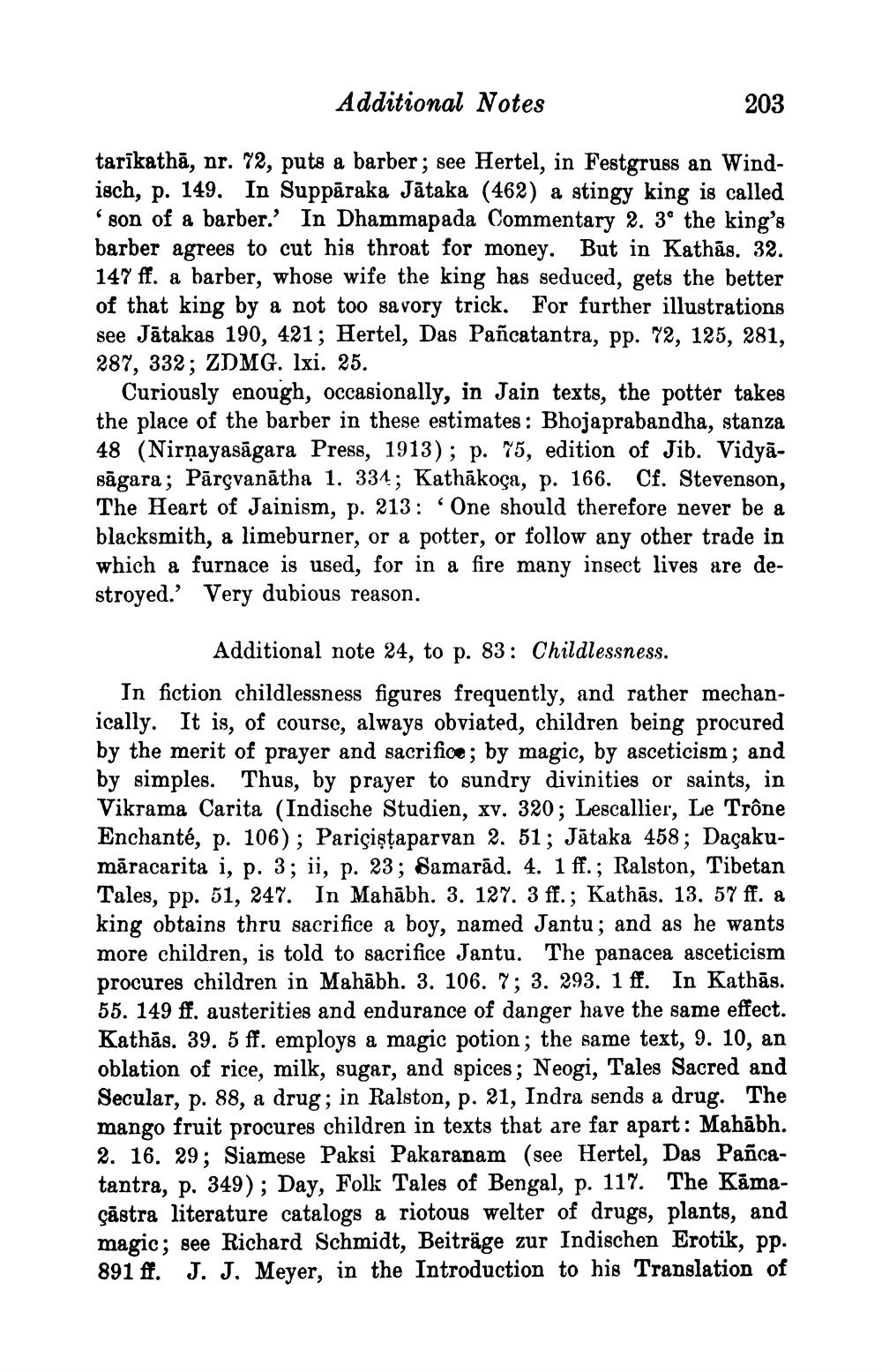________________
Additional Notes
203
tarikathā, nr. 72, puts a barber; see Hertel, in Festgruss an Windisch, p. 149. In Suppāraka Jātaka (462) a stingy king is called
son of a barber.' In Dhammapada Commentary 2. 3o the king's barber agrees to cut his throat for money. But in Kathās. 32. 147 ff. a barber, whose wife the king has seduced, gets the better of that king by a not too savory trick. For further illustrations see Jātakas 190, 421; Hertel, Das Pañcatantra, pp. 72, 125, 281, 287, 332; ZDMG. Ixi. 25.
Curiously enough, occasionally, in Jain texts, the potter takes the place of the barber in these estimates : Bhojaprabandha, stanza 48 (Nirņayasāgara Press, 1913); p. 75, edition of Jib. Vidyasāgara; Pārçvanātha 1. 334; Kathākoça, p. 166. Cf. Stevenson, The Heart of Jainism, p. 213: One should therefore never be a blacksmith, a limeburner, or a potter, or follow any other trade in which a furnace is used, for in a fire many insect lives are destroyed. Very dubious reason.
Additional note 24, to p. 83: Childlessness. In fiction childlessness figures frequently, and rather mechanically. It is, of course, always obviated, children being procured by the merit of prayer and sacrifice; by magic, by asceticism; and by simples. Thus, by prayer to sundry divinities or saints, in Vikrama Carita (Indische Studien, xv. 320; Lescallier, Le Trône Enchanté, p. 106); Parisiştaparvan 2. 51; Jātaka 458; Daçakumāracarita i, p. 3; ii, p. 23; Samarād. 4. 1 ff.; Ralston, Tibetan Tales, pp. 51, 247. In Mahābh. 3. 127. 3 ff.; Kathās. 13. 57 ff. a king obtains thru sacrifice a boy, named Jantu; and as he wants more children, is told to sacrifice Jantu. The panacea asceti procures children in Mahābh. 3. 106.7; 3. 293. 1 ff. In Kathās. 55. 149 ff. austerities and endurance of danger have the same effect. Kathās. 39. 5 ff. employs a magic potion; the same text, 9. 10, an oblation of rice, milk, sugar, and spices; Neogi, Tales Sacred and Secular, p. 88, a drug; in Ralston, p. 21, Indra sends a drug. The mango fruit procures children in texts that are far apart: Mahābh. 2. 16. 29; Siamese Paksi Pakaranam (see Hertel, Das Pañcatantra, p. 349); Day, Folk Tales of Bengal, p. 117. The Kāmaçastra literature catalogs a riotous welter of drugs, plants, and magic; see Richard Schmidt, Beiträge zur Indischen Erotik, pp. 891 ff. J. J. Meyer, in the Introduction to his Translation of




